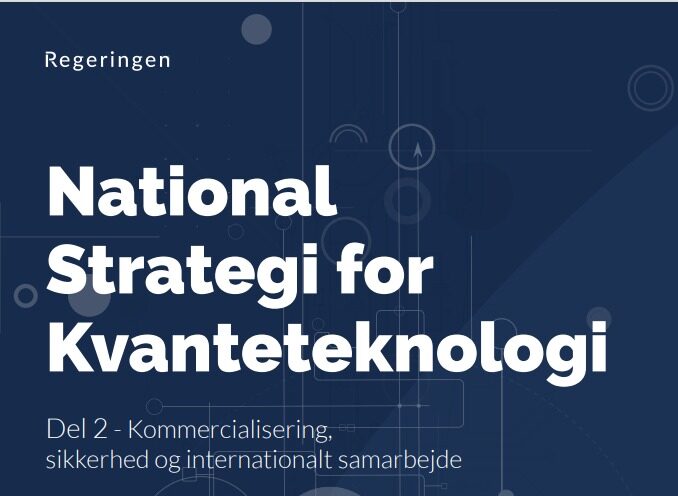A team of Danish researchers at the Department of Management at Aarhus BSS, Aarhus University will prepare European companies for the emerging computer revolution: The Quantum Computer.
Expecting a huge global market, the European Commission has set aside 1 billion euros over the next 10 years to take a leading position in quantum computation by 2030.
The quantum computer is maturing rapidly, and with computing power that will exceed what we can currently fathom, it will revolutionize the digital world as we know it. And in the wake of that development, a global market will be created, which today is estimated at up to DKK 1,000 billion. dollars in 2040, which will generate up to 10 million jobs worldwide.
When the quantum computer will arrive, is not known. In five years, in 10 years, or 20 years. But it is coming, and both China, the USA, and the EU have invested large public sums into the race to take a leading position in the field.
“The quantum industry that will emerge in the wake (of the technological development [ed.]) will not be created overnight. It will have been a long time in the making and is already slowly underway. It is therefore important that companies prepare for the quantum revolution through the right investments and training of the right workforce so that they are ready. But it must be done wisely, so that we avoid an overheating of the market before it even comes, and so that you avoid new IT bubbles, as we have seen in the past,” says Professor MSO Jacob Sherson, Department of Business Management at Aarhus BSS at Aarhus University.
Among other things, he and his colleagues at the Department of Business Management will contribute with analyzes of which industries and sectors will benefit most from preparing, and not least how and when they should do it. In this way, they will avoid being either too early or late in their preparations.
“We saw in the 1990s how broken expectations around artificial intelligence (AI) led to an “AI winter” that lasted until the 2010s. We can utilize the knowledge we have at the Department of Business Management about previous IT revolutions and how different industries develop so that investments are made in the right order, whether you want to be a “first mover” or be more wait-and-see,” says Jacob Sherson.
Another aspect of the preparations for the coming quantum revolution is the training of the companies’ employees, to which Jacob Sherson and his research colleagues will contribute.
“There will be many people with different professional backgrounds that need to know about quantum technology on one level or another. Therefore, it is important to develop a common language and a framework for which competencies and skills are needed,” he says.



